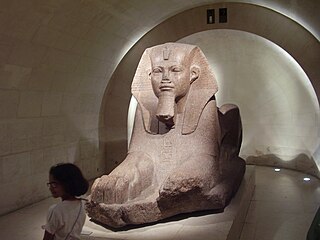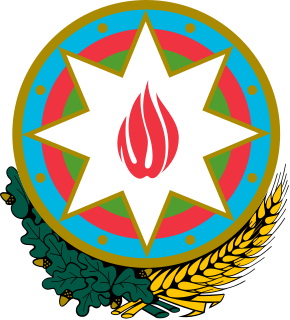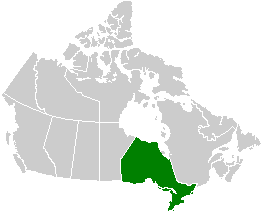Related Research Articles
In the broadest sense, cultural resource management (CRM) is the vocation and practice of managing heritage assets, and other cultural resources such as contemporary art. It incorporates Cultural Heritage Management which is concerned with traditional and historic culture. It also delves into the material culture of archaeology. Cultural resource management encompasses current culture, including progressive and innovative culture, such as urban culture, rather than simply preserving and presenting traditional forms of culture.

The National Commission for Culture and the Arts of the Philippines is the official government agency for culture in the Philippines. It is the overall policy making body, coordinating, and grants giving agency for the preservation, development and promotion of Philippine arts and culture; an executing agency for the policies it formulates; and task to administering the National Endowment Fund for Culture and the Arts (NEFCA) – fund exclusively for the implementation of culture and arts programs and projects.

Cultural policy is the government actions, laws and programs that regulate, protect, encourage and financially support activities related to the arts and creative sectors, such as painting, sculpture, music, dance, literature, and filmmaking, among others and culture, which may involve activities related to language, heritage and diversity. The idea of cultural policy was developed at UNESCO in the 1960s. Generally, this involves governments setting in place processes, legal classifications, regulations, legislation and institutions which promote and facilitate cultural diversity and creative expressions in a range of art forms and creative activities. Cultural policies vary from one country to another, but generally they aim to improve the accessibility of arts and creative activities to citizens and promote the artistic, musical, ethnic, sociolinguistic, literary and other expressions of all people in a country. In some countries, especially since the 1970s, there is an emphasis on supporting the culture of Indigenous peoples and marginalized communities and ensuring that cultural industries are representative of a country's diverse cultural heritage and ethnic and linguistic demographics.
Rural tourism focuses on actively participating in a rural lifestyle. It can be a variant of ecotourism. Many villages can facilitate tourism because many villagers are hospitable and eager to welcome visitors. Agriculture is becoming highly mechanized and therefore, requires less manual labor. This trend is causing economic pressure on some villages, which in turn causes young people to move to urban areas. There is however, a segment of the urban population that is interested in visiting the rural areas and understanding the lifestyle.
The Ethiopian Ministry of Culture and Tourism is the ministry of the government of Ethiopia responsible for researching, preserving, developing, and promoting the culture and tourist attractions of Ethiopia and its peoples, both inside the country and internationally. In doing so the Ministry closely works together with different national and international stakeholders.
Tourism in Mauritius is an important component of the Mauritian economy as well as a significant source of its foreign exchange revenues. The tourism industry is also a major economic pillar on the island of Rodrigues; however, tourism has not been developed in Agaléga Islands. Mauritius is mostly appreciated by tourist for its natural environment and man-made attractions, the multi-ethnic and cultural diversity of the population, the tropical climate, beaches and water sports.

Tourist Resorts (Kerala) Ltd or (TRKL) is a Government of Kerala undertaking under Kerala Tourism Department, established in August 1989 to promote tourism investment and to develop Tourism infrastructure in the Indian state of Kerala. TRKL was conceived to identify tourism infrastructure needs of the state and bridge any identified gaps. Kerala is today growing at an amazing pace in tourism, adhering to the principles of indigenousness, environmental sustainability and community participation. Kerala's beaches, hill stations, backwaters, wildlife sanctuaries, historical monuments, etc. attract foreign as well as domestic tourists.

Heritage commodification is the process by which cultural themes and expressions come to be evaluated primarily in terms of their exchange value, specifically within the context of cultural tourism. These cultural expressions and aspects of heritage become "cultural goods"; transformed into commodities to be bought, sold and profited from in the heritage tourism industry. In the context of modern globalization, complex and often contradictory layers of meaning are produced in local societies, and the marketing of one's cultural expressions can degrade a particular culture while simultaneously assisting in its integration into the global economy. The repatriation of profits, or "leakage", that occurs with the influx of tourist capital into a heritage tourist site is a crucial part of any sustainable development that can be considered beneficial to local communities. Modern heritage tourism reproduces an economic dynamic that is dependent upon capital from tourists and corporations in creating sustained viability. Tourism is often directly tied to economic development, so many populations see globalization as providing increased access to vital medical services and important commodities.
The Ministry of Heritage, Sport, Tourism and Culture Industries, was created on January 18, 2010 when the Ministry of Culture and the Ministry of Tourism were combined under one ministry. Sport was added to the portfolio in 2011. It is responsible for the development of policies and programs and the operation of programs related to tourism, arts, cultural industries, heritage sectors and libraries, in Ontario. The Ministry works in partnership with its agencies, attractions, boards and commissions and the private sector to maximize the economic, cultural and social contributions of its agencies and attractions, while promoting the tourism industry and preserving Ontario's culture and heritage.

The Egyptian Ministry of Communications and Information Technology (MCIT) is the government body responsible for information and communications technology (ICT) issues in the Arab Republic of Egypt. Established in 1999, MCIT is responsible for the planning, implementation and operation of government ICT plans and strategies. MCIT is led by the Minister of Communications and Information Technology, who is nominated by the Prime Minister and is a member of the cabinet. The current ICT Minister is Amr Talaat who assumed the position on 14 June 2018. MCIT is headquartered in Smart Village Egypt, in 6th of October, Giza Governorate, in the Cairo metropolitan area.

The Ministry of Culture of Azerbaijan Republic is a governmental agency within the Cabinet of Azerbaijan in charge of regulation of the activities and promotion of Azerbaijani culture. The ministry is headed by Anar Karimov.

The Ministry of Youth and Sports of Azerbaijan Republic is a governmental agency within the Cabinet of Azerbaijan in charge of regulating activities related to sports and youth development in Azerbaijan Republic. The ministry is headed by Farid Gayibov.
Manitoba Sport, Culture and Heritage is the department of the Government of Manitoba responsible for managing government programs and services that support the sport, art, culture, and heritage of the province, through developing, supporting, promoting, and celebrating the identity and well-being of Manitoba and its communities.

Archaeology and conservation of cultural resources in Ontario fall under the Ministry of Tourism, Culture and Sport. The Province of Ontario has created Acts to insure the protection archaeological and cultural resources. Acts such as the Ontario Heritage Act and Environmental Assessment Act provide the major legal documents that protect heritage and cultural resources. Additionally, Acts such as the Planning Act, the Aggregate Resource Act and the Ontario Cemeteries Act are also implemented when specific triggers occur during archaeological assessments.
The concept of cultural policy in Abu Dhabi within the United Arab Emirates refers to any initiative undertaken by the Emirate's government aimed at achieving goals of certain cultural content and ascribable within a coherent strategic framework. Today, Abu Dhabi's foremost ambition is to develop a cultural infrastructure that will allow it to establish itself as a reference point for culture on three levels:

The Carniriv is an annual festival, held in Port Harcourt, Nigeria. The Carnival starts few weeks before Christmas, and lasts for seven days. During this time several ceremonial events are held, most of which hold some cultural and or sacred significance.

The Sagarmala Programme is an initiative by the government of India to enhance the performance of the country's logistics sector. The programme envisages unlocking the potential of waterways and the coastline to minimize infrastructural investments required to meet these targets.

Cultural governance is governance of culture. It includes cultural policy made by governments but extends also to cultural influence exerted by non-state actors and to policies which influence culture indirectly.

The Federal Agency for Tourism (Rostourism) is a federal executive body of the Russian Federation, created by Presidential Decree No. 1453 of November 18, 2004. The Federal Agency for Tourism is responsible for rendering state services, managing state property and performing law-enforcement functions in the field of tourism. It is under the direct jurisdiction of the government of Russia. Activities of the Federal Agency for Tourism guided by the Constitution of the Russian Federation, Federal laws, Decrees of the President and the Government of the Russian Federation, and international treaties. The Federal Agency for Tourism carries out its activities in cooperation with other federal executive bodies, executive authorities of the subjects of the Russian Federation, local self-governing bodies, public associations and other organizations. The Federal Agency for Tourism is a legal entity, has a seal with the image of the State Coat of Arms of the Russian Federation and its name, other seals, stamp, and letterhead, as well as bank and other accounts opened. It receives funding for its operation and project implementation from the federal budget. The agency head office is in Moscow.

State Tourism Agency of the Republic of Azerbaijan is a governmental body established according to the decree of the president of Azerbaijan on the improvement of public administration in the field of culture and tourism.
References
- 1 2 "Tourism Summit Begins In Rivers, 'Morrow". The Tide . Port Harcourt: Rivers State Newspaper Corporation. 22 June 2012. Retrieved 2 June 2018.
- 1 2 3 "Ministry of Culture and Tourism". mct.rv.gov.ng. Retrieved 2 June 2018.